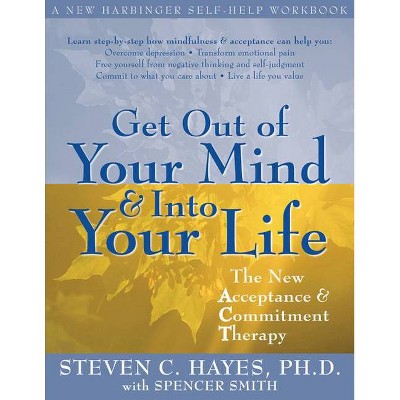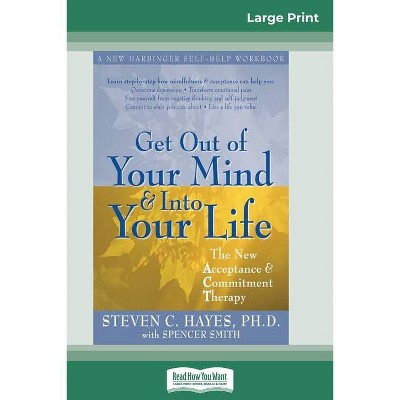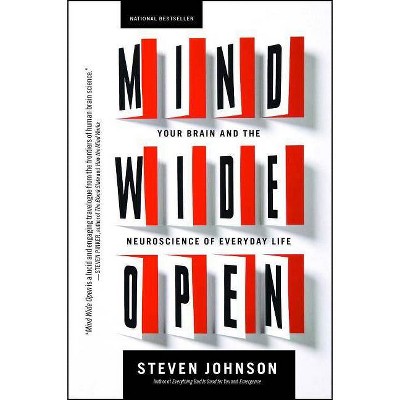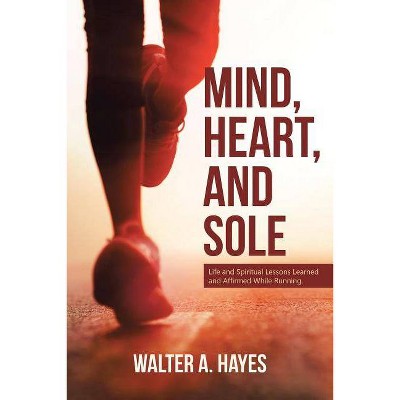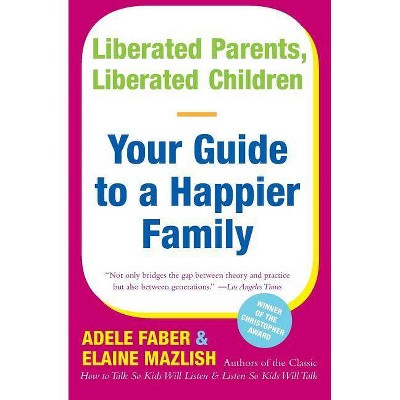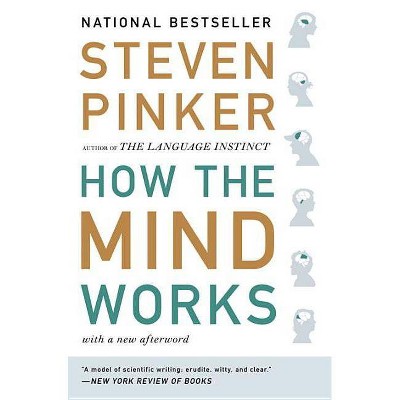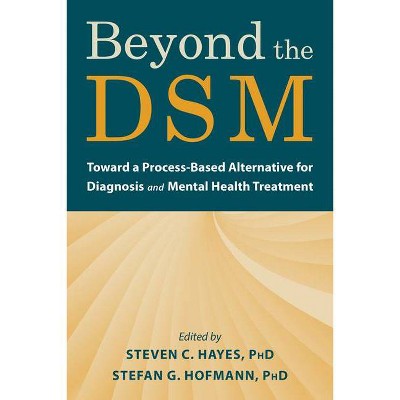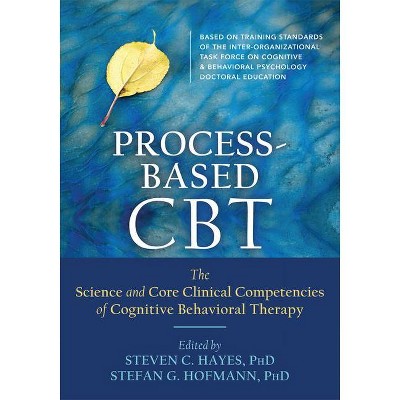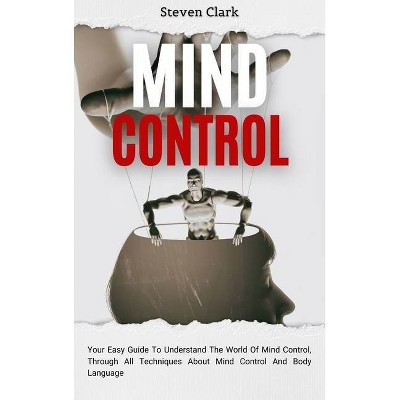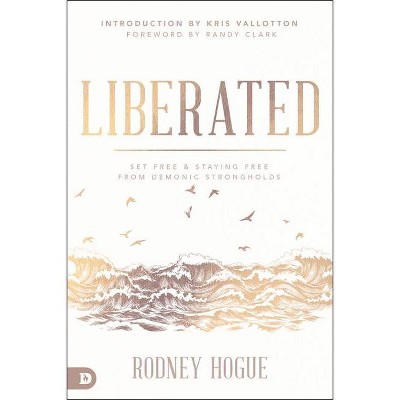A Liberated Mind - by Steven C Hayes (Paperback)
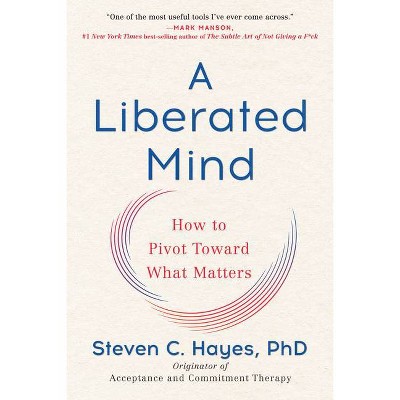
Similar Products
Products of same category from the store
AllProduct info
<p/><br></br><p><b> Book Synopsis </b></p></br></br><b><b>In all my years studying personal growth, Acceptance and Commitment Therapy is one of the most useful tools I've ever come across, and in this book, Dr. Hayes describes it with more depth and clarity than ever before.-Mark Manson, #1 </b><b><i>New York Times</i></b><b> best-selling author of </b><b><i>The Subtle Art of Not Giving a F*ck</i></b><br><b></b><br><b>Life is not a problem to be solved. ACT shows how we can live full and meaningful lives by embracing our vulnerability and turning toward what hurts.</b></b> <p/>In this landmark book, the originator and pioneering researcher into Acceptance and Commitment Therapy (ACT) lays out the psychological flexibility skills that make it one of the most powerful approaches research has yet to offer. These skills have been shown to help even where other approaches have failed. Science shows that they are useful in virtually every area--mental health (anxiety, depression, substance abuse, eating disorders, PTSD); physical health (chronic pain, dealing with diabetes, facing cancer); social processes (relationship issues, prejudice, stigma, domestic violence); and performance (sports, business, diet, exercise). <p/>How does psychological flexibility help? We struggle because the problem-solving mind tells us to run from what causes us fear and hurt. But we hurt where we care. If we run from a sense of vulnerability, we must also run from what we care about. By learning how to liberate ourselves, we can live with meaning and purpose, along with our pain when there is pain. <p/>Although that is a simple idea, it resists our instincts and programming. The flexibility skills counter those ingrained tendencies. They include noticing our thoughts with curiosity, opening to our emotions, attending to what is in the present, learning the art of perspective taking, discovering our deepest values, and building habits based around what we deeply want. <p/>Beginning with the epiphany Steven Hayes had during a panic attack, this book is a powerful narrative of scientific discovery filled with moving stories as well as advice for how we can put flexibility skills to work immediately. Hayes shows how allowing ourselves to feel fully and think freely moves us toward commitment to what truly matters to us. Finally, we can live lives that reflect the qualities we choose.<p/><br></br><p><b> Review Quotes </b></p></br></br><br>In all my years studying personal growth, Acceptance and Commitment Therapy is one of the most useful tools I've ever come across, and in this book, Dr. Hayes describes it with more depth and clarity than ever before.<b>-Mark Manson, <b>#1 <i>New York Times</i> best-selling author of <i>The Subtle Art of Not Giving a F*ck</i></b></b> <p/>Steven Hayes possesses an extraordinary trifecta of skills: A brilliant theoretical and research psychologist, he's also a compassionate clinician and a wonderfully engaging writer. <i>A Liberated Mind</i> is packed with jewels of insight and information that could change the way we deal with suffering as individuals and as a society. A compelling, revelatory read.<b>-Martha Beck Ph.D, author of <i>Finding Your Own North Star</i></b> <p/>Written for a very broad audience, Dr. Hayes is able to clearly translate the science and clinical complexity of this treatment into concrete guiding principles for people's lives. These principles not only apply to psychological suffering, but also to physical illnesses, relationships, corporations, societies, and cultures. The book is honest, compassionate, and profoundly insightful. It will transform your life by liberating your mind.<b>-Stefan G. Hofmann, Ph.D. Professor of Psychology at Boston University<br></b><br>The key to evolving consciousness is cultivating a flexible mind--open, present, empowered and aligned with deep values--and Steven Hayes does a brilliant job showing us how. This book is organized around developing six psychological skills that clinical research shows, beyond all other factors, promote flexibility and translate into a happier and healthier life. As you read this illuminating book, you'll see how these skills are learnable, that you can start right now, and how when woven together, they offer a path to inner freedom.<b>-Tara Brach, Ph.D, author of <i>Radical Acceptance</i> and <i>True Refuge<br></i></b><br>In our crisis-ridden society psychological flexibility is more needed than ever. Transcending shallow and ineffective behavioral approaches, Dr. Steven Hayes here presents a methodology, a skill-set, for emotional liberation that enables us to pivot from self-limitation to self-awareness and self-affirmative action.<b>-Gabor Maté MD, author, <i>When The Body Says No: Exploring The Stress-Disease Connection<br></i></b><br>We can spend our lives avoiding the thoughts and feelings that cause us pain. But Steve Hayes has become a leader in his field by understanding that things that cause us pain are things about which we care. By learning to use psychological flexibility we can turn toward the difficult places to live with richness and meaning. Compassionate, helpful, and authoritative, A Liberated Mind shows us a powerful way to a fulfilling life.<b>-Susan David, PhD, author of <i>Emotional Agility</i></b><br> <i><br>A Liberated Mind</i> provides an outstanding introduction to a psychological approach that has changed many lives by turning us toward focusing on our values. The ideas and advice presented here help us truly understand what matters so that we can live with greater freedom, courage, and joy.<b>-Kelly McGonigal, author of </b><i><b>The Willpower Instinct</b></i><b> and The Upside of Stress</b> <p/><i></i>Having dealt with his own problems, such as panic attacks, Hayes deftly explains how to pivot by creating habits, accepting vulnerability and changing perspective.<i><b>-Success Magazine <p/></b></i>His latest book functions as an ACT primer, from the therapy's development (it sprouted from the Cognitive Behavioral Therapy tradition) to a variety of tools and practices that the reader can integrate immediately.<i><b>-Spirituality & Health</b></i><br><p/><br></br><p><b> About the Author </b></p></br></br><b>Steven C. Hayes, Ph.D., </b> is a professor of psychology at the University of Nevada, Reno. The author of forty-three books and more than six hundred scientific articles, he has served as president of the Association for Behavioral and Cognitive Therapy and the Association for Contextual Behavioral Science, and is one of the most cited psychologists in the world. Dr. Hayes initiated the development of Acceptance and Commitment Therapy (ACT) and of Relational Frame Theory (RFT), the approach to cognition on which ACT is based. His research has been cited widely by major media, including: <i>Time</i> magazine, <i>The New Yorker</i>, <i>The New York Times</i>, <i>Men's Health</i>, <i>Self</i>, <i>The Wall Street Journal</i>, <i>Psychology Today</i>, <i>O, The Oprah Magazine</i>, and <i>Salon.com</i>.
Price History
Price Archive shows prices from various stores, lets you see history and find the cheapest. There is no actual sale on the website. For all support, inquiry and suggestion messages communication@pricearchive.us
